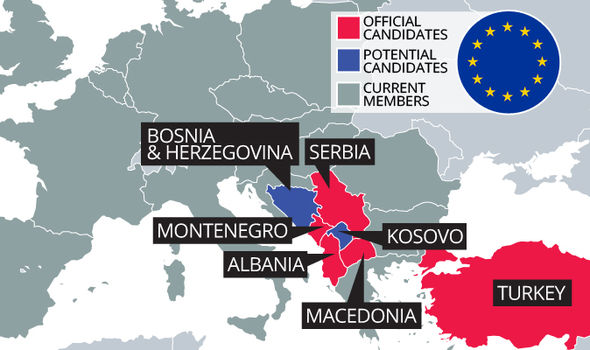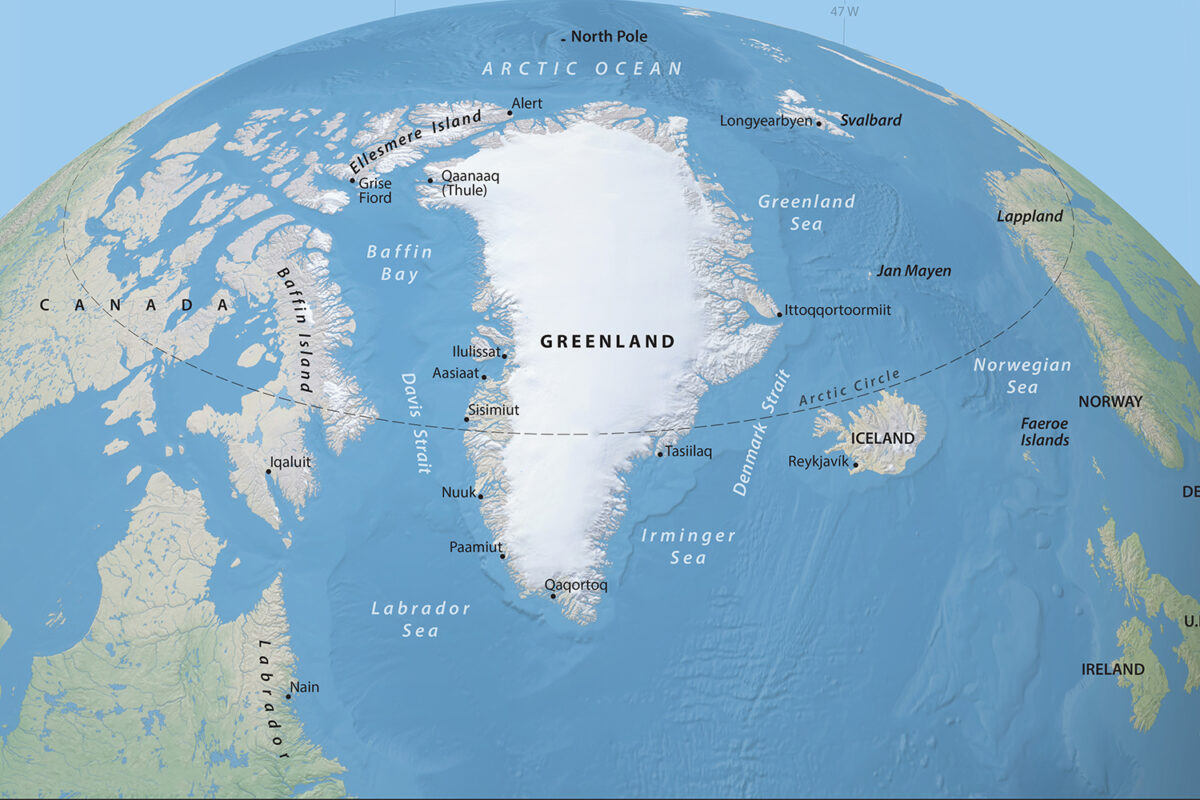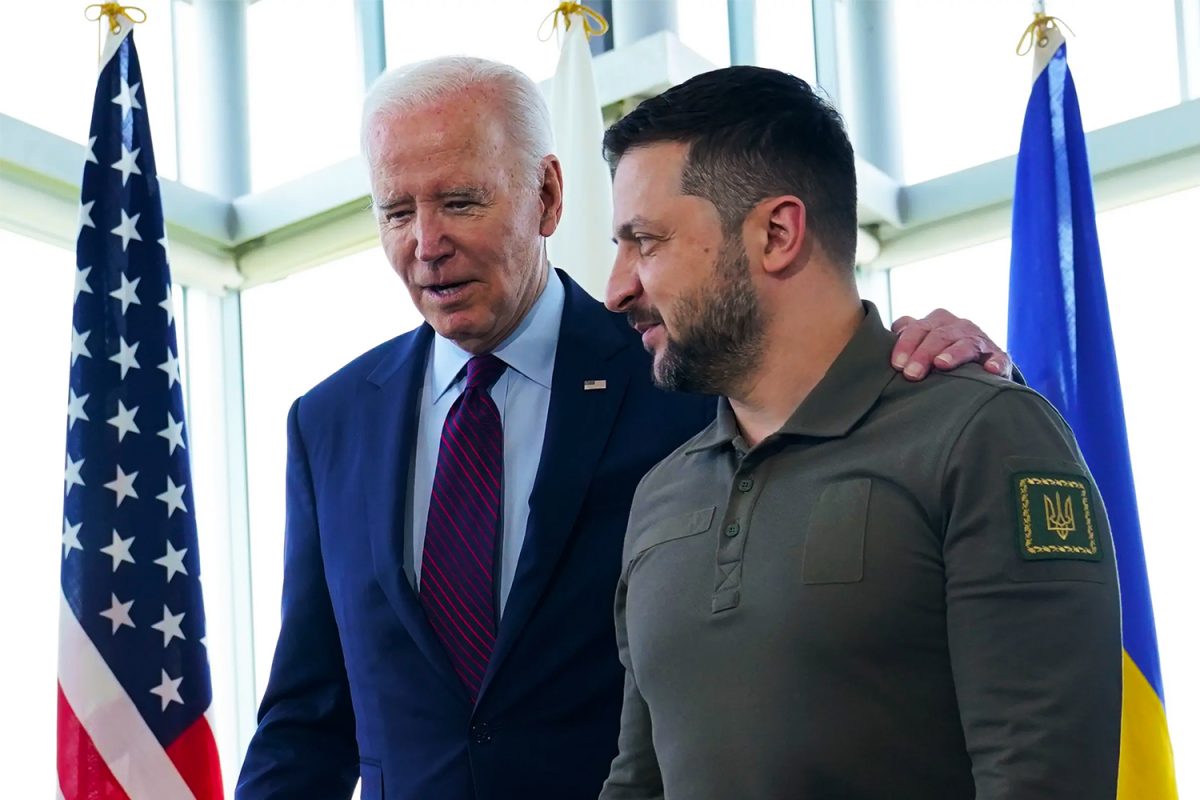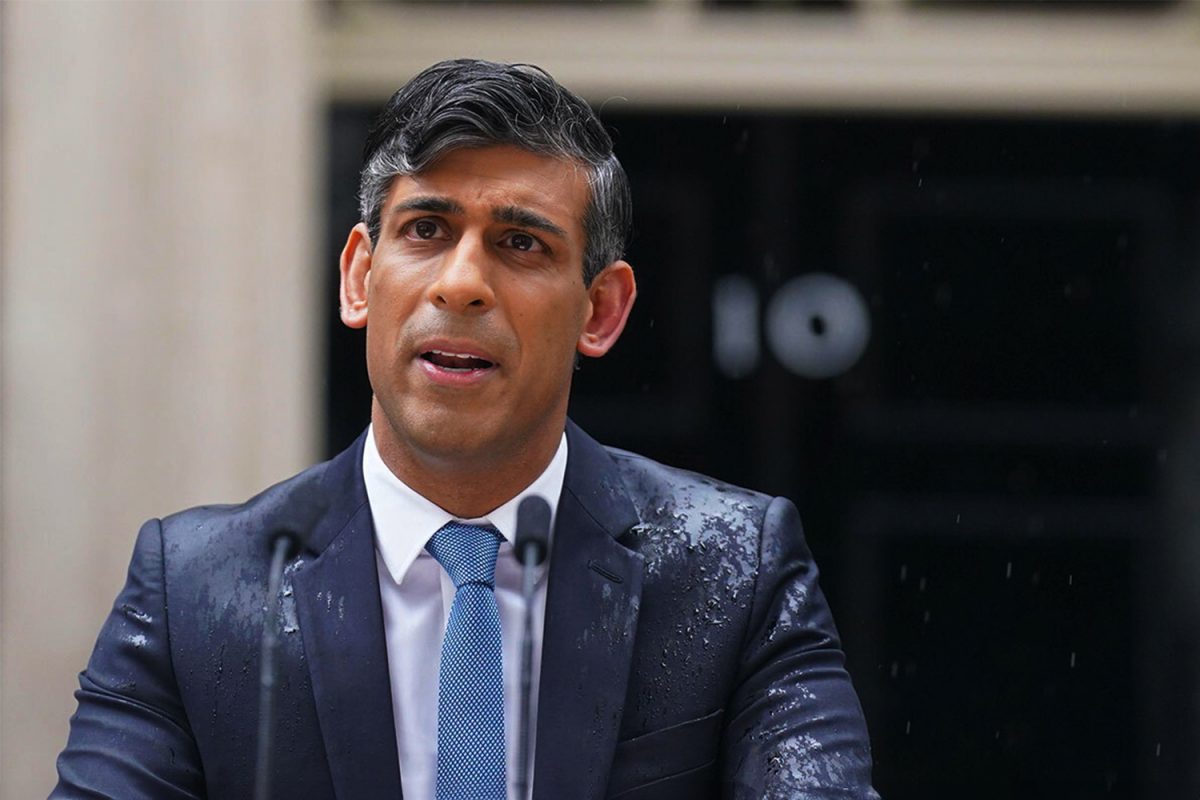The European Commission announced on April 19, that it was working on a recommendation for Ukraine being formally granted official candidate status after it fully responded to a set of questions regarding its application to become a member of the European Union. When Slovenia took hold of the rotating presidency of the Council of the EU on the 1st July 2021 the country said one of her main priorities was to expand the union and add candidate nations to the EU. The last decade has been a difficult one for the union as the global economic crisis in 2008 tested the union’s fiscal rules and the rise of nationalist sentiment has seen large segments of Europe’s population turn against the EU.
There are five recognised candidates for membership of the European Union. Aside from Turkey who applied in 1987 the other candidates are all Balkan nations and entities. North Macedonia applied in 2004, whilst Montenegro applied in 2008. Albania and Serbia made their candidacy applications in 2009. Kosovo and Bosnia and Herzegovina are recognised as potential candidates for membership by the EU also. Bosnia and Herzegovina has formally submitted an application for membership, whilst Kosovo has a Stabilisation and Association Agreement. Beyond these nations, Norway and Switzerland submitted membership applications in the past but subsequently froze them. Iceland did the same and subsequently withdrew her application. In 2014, the EU signed Association Agreements with Georgia, Moldova and Ukraine and the EU parliament passed a resolution recognising the ‘European perspective’ of all three countries.[1]
With sentiment against the EU at rock bottom and with nations leaving the union there is a very real question of why any nation would want to join the EU. For the Balkan nations they would get access to the many EU programmes and subsidies that are provided to poorer nations. Balkan nations believe this would help in increasing the standard of living in the region. By being part of the union, the Balkans would become an attractive investment destination as EU member states are seen as safe investments with rule of law and high standards. For Balkan citizens they could freely travel throughout the union and seek employment, thus bringing many economic and social benefits to Balkan nations. Many EU member states already believe Balkan membership would create stability on the eastern edges of the continent as they would grow prosperous.
The European Union requires all member nations to meet standards that include political, economic, social and structural changes. This is a very high standard and doesn’t make joining the union easy as member nations need to bring all their laws in line with EU rules and comply with EU standards. EU accession is also a decades long process as negotiations are all broken down into policy areas and negotiated one-by-one.
The European Union requires all member nations to meet standards that include political, economic, social and structural changes
The current obstacles facing the Balkan nations are both structural and political. The Balkan nations need to meet the EU’s criteria on corruption, rule of law, dealing with crime, minorities and government involvement in the economy. Many of the Balkan nations are not full market economies and they lack strong political institutions. Corruption remains high and the rule of law is extremely weak.
But even if these structural issues are overcome there are a number of political issues which still remain. Before Serbia can join the EU, officials want her to have normal relations with Kosovo. Serbia doesn’t even recognise Kosovo and sees her as a rebel region.
Greece has long been opposed to Macedonia’s membership as Greece doesn’t want her to use the Macedonia name of the same region she has. After long talks Macedonia agreed to change her name to North Macedonia, but now Bulgaria is threatening to veto this due to her own dispute with her over several cultural issues. Bosnia on the other hand is still a very fragile nation due to many internal issues and is largely a dysfunctional nation.
The other major issue comes from within the EU. Many EU heavyweights don’t want to see additional states join the union. 12 new nations joined the EU between 2004-2007 and the French believe the EU has expanded too fast and is now too big to manage. The French believe EU leaders and institutions should focus on consolidation rather than expansion. Poorer nations joining the EU is believed by some member states to weaken EU institutions.
The EU has for long used EU membership as a foreign policy tool to expand eastwards. By promising many Eastern European nations accession over the years this gave the EU influence. By not making good on such promises there are a number of other regional and global nations that could gain influence over the Balkans such as Russia, China and Turkey.
EU expansion is about the Balkans joining the EU but huge challenges need to be overcome, taking into account all the historical problems in the region.
Freezing Turkey Out
Turkey is the thirteenth largest economy in the world and is seen as a regional power by most EU nations. Despite starting official talks on membership in 2005 France alongside a host of other nations have opposed Turkey joining the union. Opponents argue that Turkey does not respect the key principles that are expected in a liberal democracy, such as the freedom of expression. Turkey’s large population would also alter the balance of power in the representative European institutions. Upon joining the EU, Turkey’s 84 million inhabitants would bestow it the largest number of MEPs in the European Parliament. It would become the most populous country in the EU. Turkey also does not recognise one EU state, Cyprus, because of the Cyprus dispute the Cypriot government blocks some chapters of Turkey’s talks.
Turkey’s relations with the EU have seriously deteriorated in the aftermath of the 2016 Turkish coup attempt and subsequent purges. In November 2016, the European Parliament approved a non-binding resolution calling for the ‘temporary freeze of the ongoing accession negotiations with Turkey’ over human rights and rule of law concerns. The European Council has not opened any new areas in Turkey’s membership talks. Today, Turkish accession talks are effectively at a standstill.
Long Road Ahead
Even if the EU officially labels Ukraine as a candidate country, Kyiv’s membership will remain elusive for decades. Becoming an official candidate is only the first step in a very lengthy and heavily bureaucratic accession process. Ukraine like all candidate nations is expected to introduce numerous political and economic reforms to meet the EU’s accession criteria.
Russia’s invasion has increased EU solidarity with Ukraine, which may see the EU accelerate the timeline to grant Ukraine candidate status. But Ukraine is still very far from meeting many of the EU’s membership criteria. In the past, Brussels has expressed concerns about issues, such as Ukraine’s weak rule of law, insufficient economic and financial reforms, corruption and protectionist trade policies. This means that even if the EU decides to make Ukraine an official candidate to send a message of support, the country still will not join the European Union for the foreseeable future. Labelling Ukraine a EU candidate will complicate peace negotiations with Russia and prolong the war because Russia went to war on the basis Ukraine was shifting closer to the western institution.
The EU has now expanded well beyond its original founder members and this expansion has resulted in the union inheriting many new challenges. The reason for creating the union after WW2 is now well in the past and many are now seeing the EU as the problem rather then the solation. The differences within the EU are now a key challenge for the union and a major point of disagreement is on whether the EU should be expanding or consolidating.
[1] Texts adopted – Situation in Ukraine – Thursday, 17 July 2014 (europa.eu)





